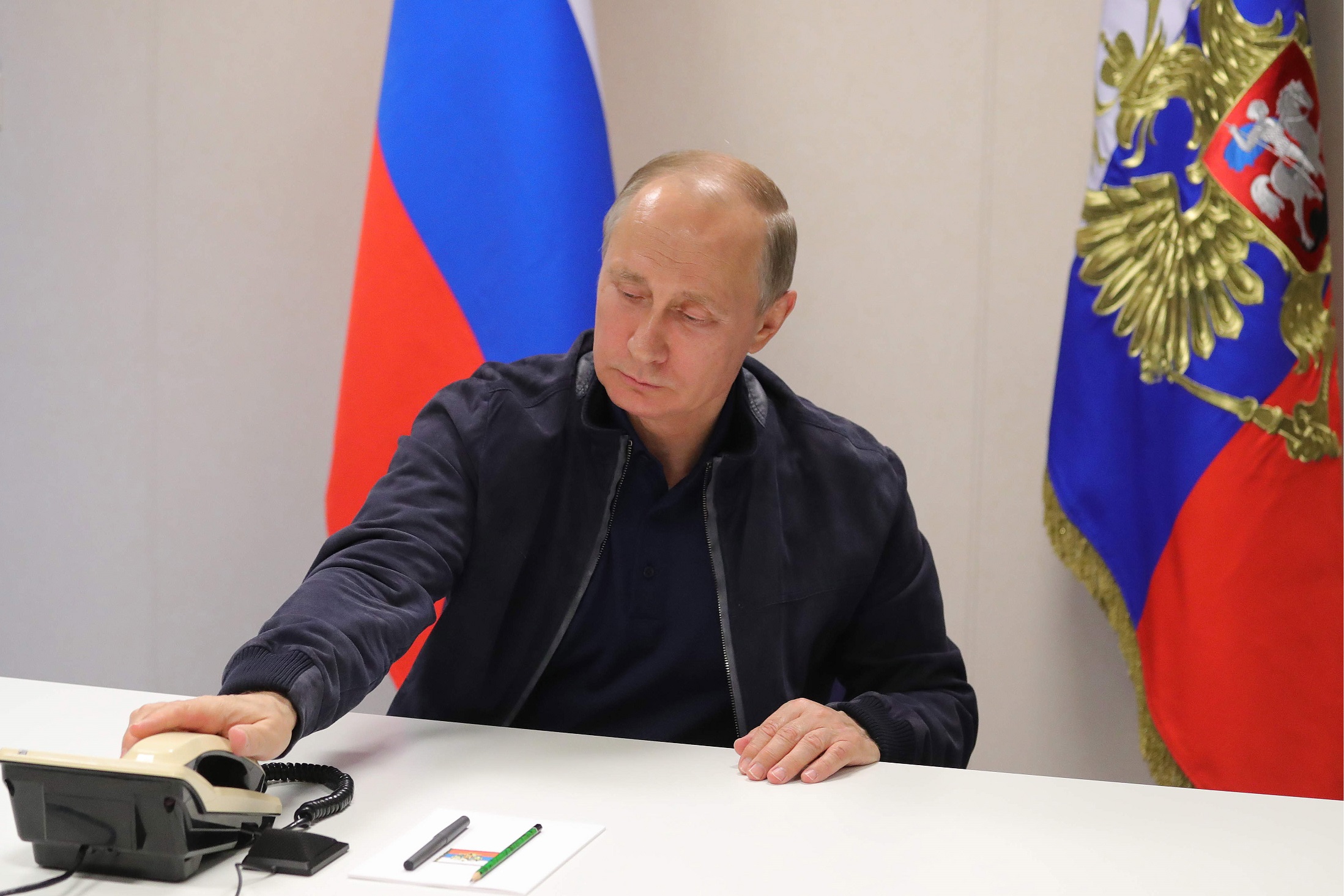ID :
463009
Mon, 09/25/2017 - 17:34
Auther :
Shortlink :
https://www.oananews.org//node/463009
The shortlink copeid
Putin, Erdogan favor further coordinated effort on Syria, say de-escalation zones open way for peace - Kremlin press service

MOSCOW, September 25./TASS/. Russia and Turkey believe it is important to further coordinate efforts on Syria, where the establishment of four de-escalation zones opens the way for peace, the Kremlin press service reports after a phone conversation of the two presidents, Vladimir Putin and Recep Tayyip Erdogan initiated by Russia.
The leaders discussed in detail the Syrian issue including in the light of positive results of the sixth international meeting in Astana on September 14-15. "It was emphasized that the setting up of four de-escalation zones in the Syrian Arab Republic opens the way for ending a civil war and for a political settlement of the crisis on the basis of the principles of sovereignty and territorial integrity of the country," the report said. "The importance of further close coordination of efforts by Russia and Turkey on the Syrian trajectory was emphasized," it added.
The phone conversation initiated by Russia also focused on some topical issues regarding the development of bilateral cooperation.
The sides agreed "to continue an in-depth exchange of opinions on the regional and bilateral agenda during a working meeting in Ankara on September 28," the press service said.
Syrian de-escalation zones
Starting from May, four de-escalation zones are being set up in Syria in line with an agreement reached in Astana by representatives of ceasefire guarantor states Russia, Iran and Turkey. The first, most extensive zone, is located in northern Syria. The de-escalation zone includes Idlib province, as well as adjacent northeastern parts of Latakia province, western areas of Aleppo province and northern areas of Hama province. All in all, this zone is home to more than one million Syrian people.
The second zone is in the north of Homs province. A third one includes Eastern Ghouta. According to the Russian General Staff, some 690,000 civilians live there, for whom the Syrian authorities have opened eight check points so that they could travel unimpeded. This zone does not include Kabun, which is controlled by militants of Jabhat al-Nusra and from where the Syrian capital is repeatedly shelled. The fourth zone is located in the south of Syria and bordering on Jordan regions. Up to 800,000 civilians live there.
The memorandum allows for the establishment of additional de-escalation zones in Syria if necessary. The memorandum will remain in effect for six months and can be automatically extended for another six months.
Read more





